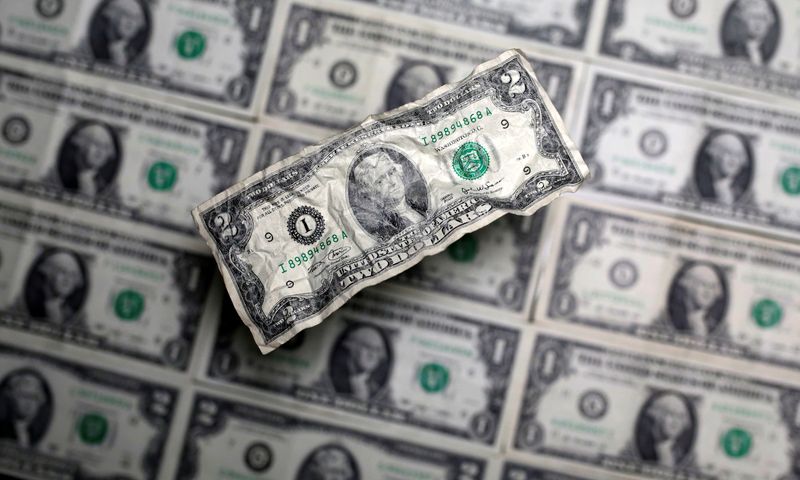By Stanley White
TOKYO (Reuters) - The dollar nursed losses against most currencies, undermined by concern that Republicans and Democrats are struggling to reach consensus on the next round of U.S. economic stimulus measures.
The euro traded near its strongest level in more than a year on Wednesday after European leaders agreed a stimulus plan to fuel recovery from the economic drag caused by the COVID-19 pandemic.
Risk appetite has improved greatly this week as progress in developing vaccines for the novel coronavirus reduced the U.S. dollar's safe-harbour appeal.
Investors also expect a massive amount of fiscal spending to support growth in major economies but could easily be disappointed if any stimulus falls short of expectations.
"You could say the dollar is weaker due to a risk-on move," said Shane Oliver, head of investment strategy and chief economist at AMP (OTC:AMLTF) Capital Investors in Sydney.
"Ironically, the dollar's weakness has been exacerbated by concerns that the United States is not doing as much as the Europeans have on stimulus."
Against the British pound
The dollar fell to 0.9322 Swiss franc
The euro (EUR=D3) rose to $1.1543 on Wednesday in Asia, to reach the highest since Jan. 10.
Against the pound, the euro (EURGBP=) was little changed at 90.55 pence.
The dollar was steady at 106.82 yen
Republicans and Democrats remained far apart on Tuesday on how much to spend on the next round of coronavirus relief as they discussed proposals to extend unemployment insurance for Americans thrown out of work and provide more money for schools.
House Speaker Nancy Pelosi said the $1 trillion package the Republicans are considering is not sufficient. The Democratic-run House of Representatives passed a $3 trillion relief bill two months ago that the Republican-majority Senate has ignored.
Concern about disagreement over stimulus spending in the United States is in contrast to the European Union.
The 27-member bloc worked over the weekend to narrow their differences and agree a 750 billion euro ($864.90 billion) recovery fund and a 1.1 trillion euro 2021-2027 budget to help the continent recover from its deepest recession since World War Two.
Elsewhere, the Antipodean currencies took advantage of the greenback's weakness and pushed higher.
The Australian dollar

The New Zealand dollar